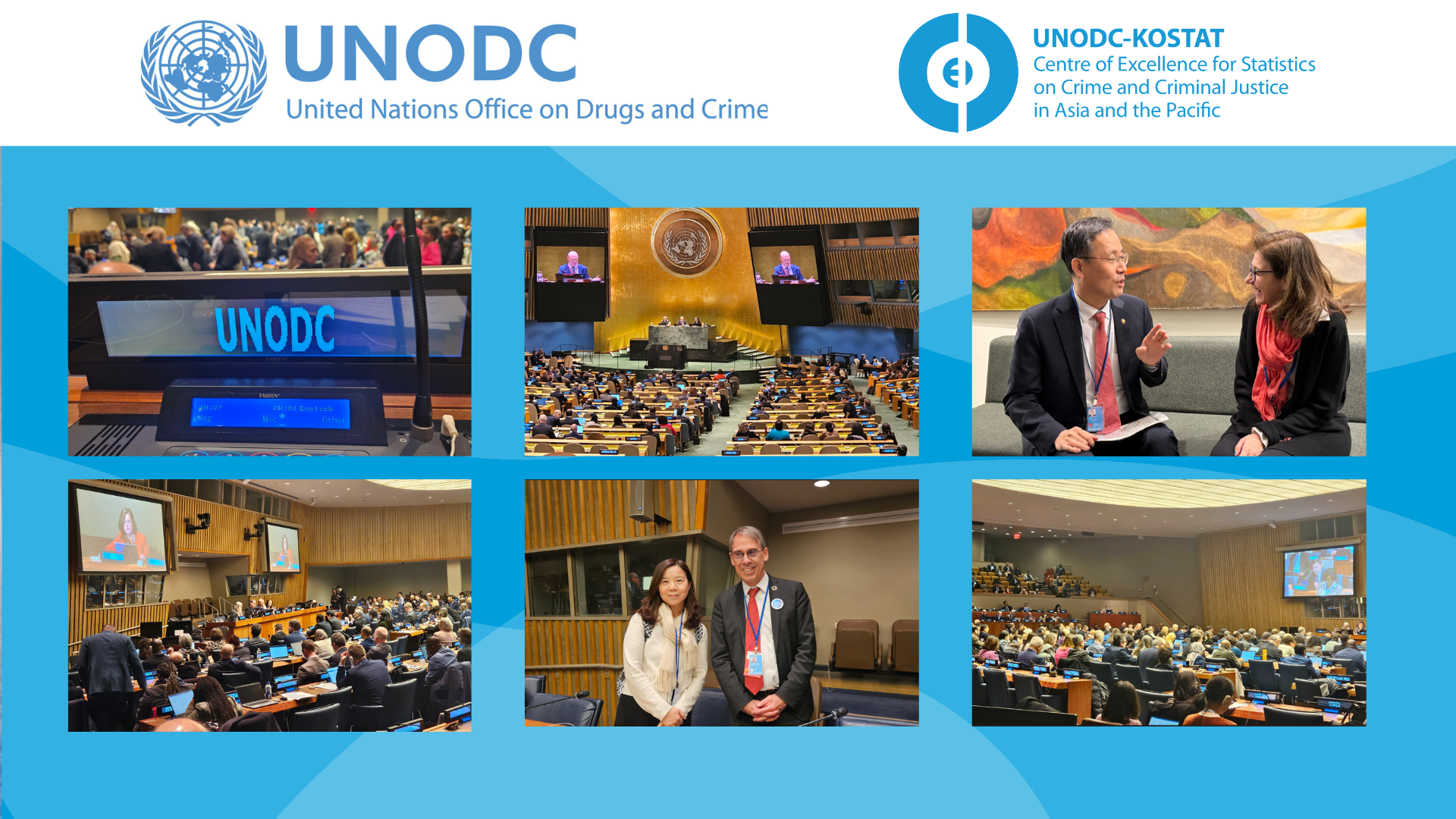
New York, 27 Feb-1 Mar 2024 – The 55th session of the United Nations Statistical Commission served as an important platform for global cooperation on statistical issues. The session aimed to advance the development and standardization of international statistical practices, supporting efforts to monitor progress towards Sustainable Development Goals (SDGs).
Representatives of the 24 States members of the UNSC, observers for other States Members and non-member States, representatives of United Nations system organizations and observers for intergovernmental, non-governmental and other organizations participated in the 2024 UNSC. Discussions centred around endorsing implementation guidelines for official statistics, improving SDG indicators, and promoting inclusivity within the Commission. The delegations also emphasized the importance of innovation and modernization in statistical methods to adapt to changing data trends.
Jonghee Choi, Coordinator of the CoE, attended the Session, observing a significant endeavour to explore international trends in crime statistics and foster collaboration among participating Member States. Deliberations at the Commission highlighted key areas such as governance statistics, gender statistics, and SDG indicators. The endorsement of implementation guidelines underscored the commitment to enhancing official statistics, while discussions on SDG data emphasized ongoing support and collaboration for effective monitoring.
Beyond the session, Jonghee had the opportunity to engage with statistical leaders and experts from various countries. These interactions facilitated discussions on collaborative initiatives to strengthen crime statistics development. From engaging with the Pacific Community (SPC) as well as UN agencies like UN Women and UNESCAP to liaising with national statistical offices, the Session paved the way for enhanced cooperation and knowledge-sharing.
A significant highlight of the mission was the establishment of collaborations to advance crime statistics between Statistics Korea (KOSTAT) and the UNODC. Through courtesy meetings and discussions, avenues for cooperation were explored, including the development of a measurement framework for cybercrime and the implementation of the Statistical Framework for Measuring the Gender-Related Killing of Women and Girls (also referred to as femicide/feminicide). The success story of the Korean Classification of Crime for Statistical Purposes (KCCS), based on the International Classification of Crime for Statistical Purposes (ICCS), served as a model for international collaboration. Discussions revolved around the implementation and potential revisions of ICCS.
Moving forward, the outcomes of the mission will lead to fostering commitments to enhancing crime indicators in the Asia-Pacific region under SDG16, expanding e-Learning modules on crime statistics from a gender perspective, and providing technical assistance for measuring femicide and corruption using strong statistical frameworks. Through collaboration, networking, and follow-up initiatives, the Center will continue to support the development of crime statistics in the region, as well as the establishment of comprehensive and reliable global standards for crime statistics.
Further information on the CoE can be found here, X @CoE_UNODC and Facebook @UNODC.KOSTAT.CoE.